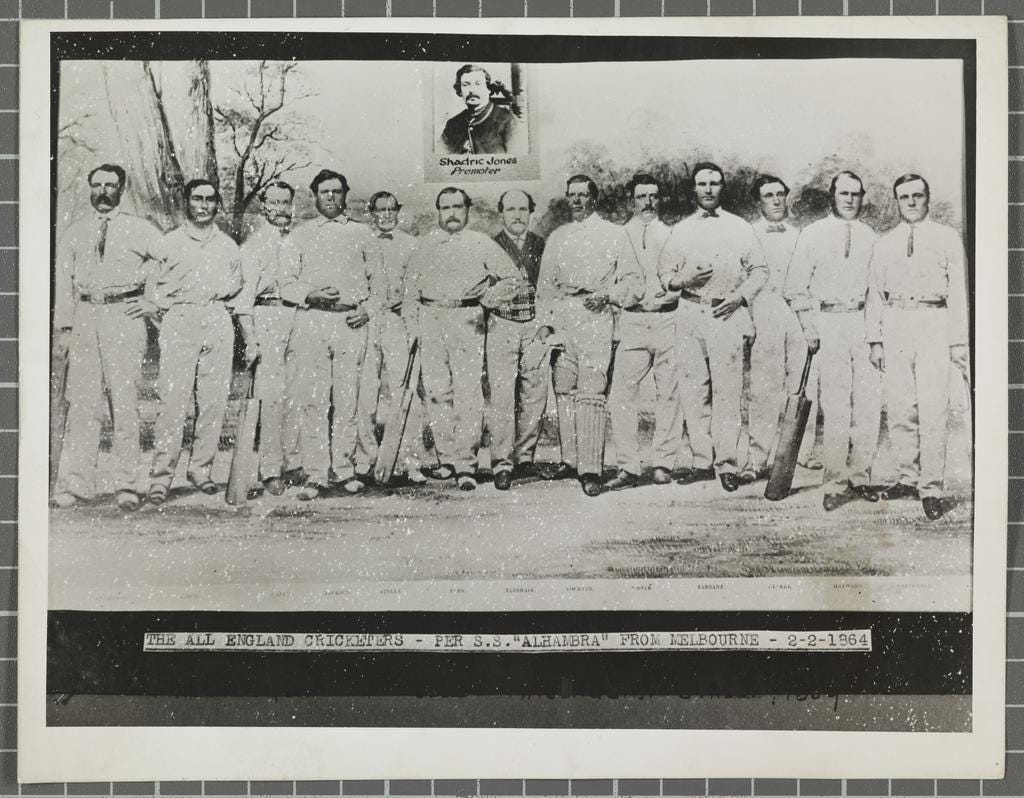Dunedin-based entrepreneur Shadric sometimes referred to as Shadrach, Jones forked out 3000 pounds to have the 1864 All-England cricket team break its tour of Australia to travel across the Tasman to play games in Dunedin and Christchurch.
It was a helpful diversion for the English, who had difficulties with their tour arrangements with their Australian organisers.
With many miners in Otago, just down the road from Dunedin around Gabriel's Gully, where Tasmanian Gabriel Read found gold, Jones reckoned there would be an appetite for the entertainment the cricket would provide the miners, many Australians or English.
Shadric Jones is pictured in an inset of a photo of the touring All-England team.
Ideally, the English would be involved in a tournament with teams from Otago, Canterbury, and Southland. But after the first day of play between Otago's XXII and England, the Otago side was dismissed for 71.
But the pitch was so bad that another pitch was chosen before England batted. At stumps on day one, England was 38-2, one of the wickets being E.M. Grace, caught for 24 by his cousin William Rees. Rees had moved to New Zealand, and his connection with Queenstown is remembered by a memorial on the scenic hotspot's waterfront.
While interest was high on the first day, a fire that broke out while the two teams were at dinner that evening destroyed 40 buildings and caused 50,000 pounds of damage. Included in the damage was the loss of the grandstand Jones had built at the Oval. It was blown over by the strong wind that fanned the flames that did so much damage to the township. With so much to be cleaned up by the fire victims, it is fair to say interest dropped significantly by day two.
However, the game continued with England dismissed for 99. Otago responded with 83 runs in its second innings, leaving England needing 58 to claim the win, a goal it achieved for the loss of one wicket.
Another game was played between a combined Otago-Canterbury team against England in Dunedin. Then, the English sailed for Christchurch to play a Canterbury XXII before returning to play another game with Otago before resuming their tour of Australia.
Jones was walloped by the losses incurred during his venture. He had to sell several hotels and take up auctioneering to get by. Soon after, Jones left New Zealand for 17 years before returning to work for four years as a doctor in Tapanui. He then moved back to Australia, dying there in 1895.



